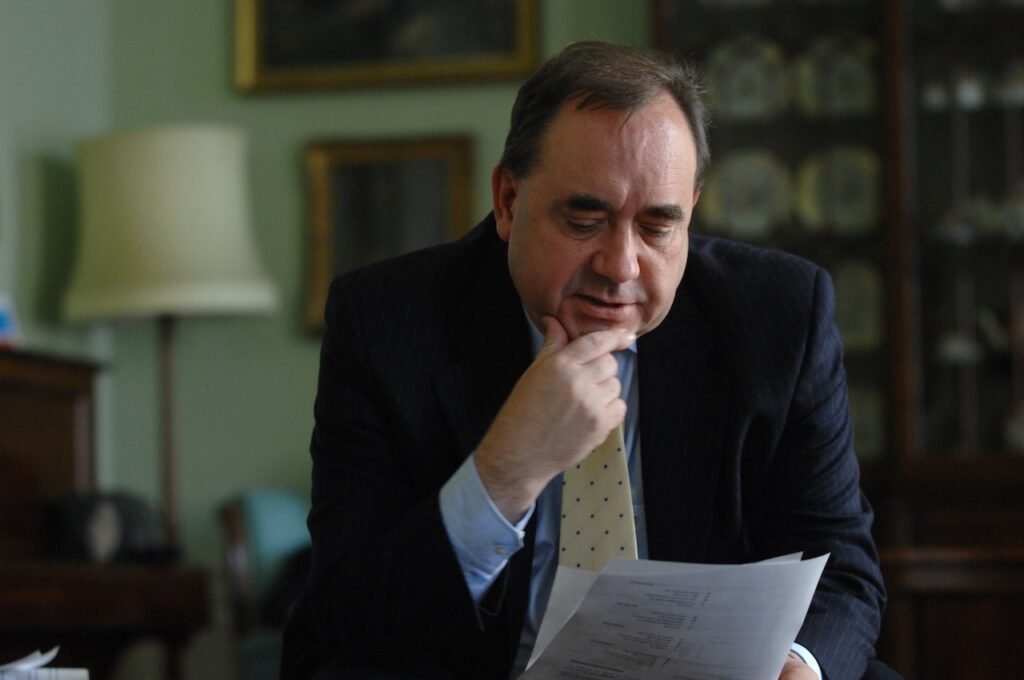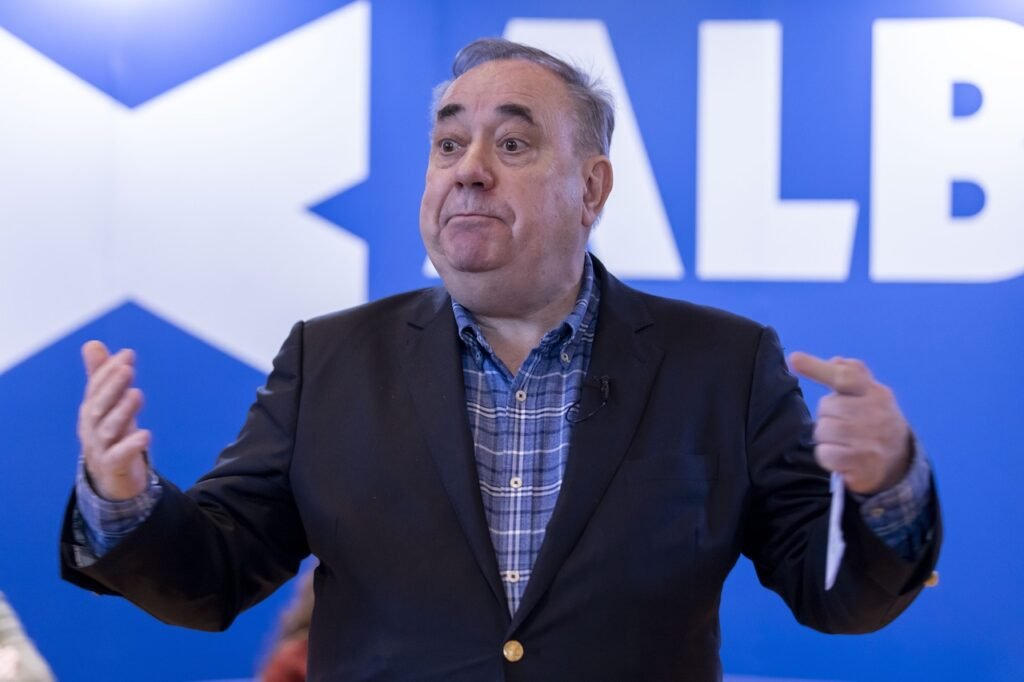Alex Salmond was one of Scotland’s most influential and controversial political figures, serving as First Minister and playing a pivotal role in the Scottish independence movement. This comprehensive article covers his biography, major achievements, political controversies, legal battles, legacy, current affairs involving his family, and answers frequently asked questions. Every detail, including his life cycle from early years to recent news about his death and the continuing legal and political saga.
Introduction
Alex Salmond’s name has become synonymous with modern Scottish nationalism and political upheaval. As a powerful statesman, his journey from a young economist to First Minister changed Scottish politics forever, with a legacy both celebrated and contested. This article delivers a detailed portrait, covering his early life, meteoric rise, watershed moments, controversies, downfall, and the ongoing repercussions after his death.
Early Life and Background
Alexander Elliot Anderson Salmond was born on December 31, 1954, in Linlithgow, Scotland, a town steeped in history. He was academically talented, pursuing economics at the University of St Andrews before a stint as an assistant economist for the Department of Agriculture and Fisheries and an economist for the Royal Bank of Scotland. In 1981, he married Moira McGlashan.
Political Career Beginnings
Alex Salmond joined the Scottish National Party (SNP) as a student and was a prominent member of the 79 Group, a socialist-leaning faction within the SNP. Despite being briefly expelled from the party in 1982, he persisted and was elected as Member of Parliament for Banff and Buchan in 1987, a seat previously held by the Conservatives. By 1990, Salmond succeeded Gordon Wilson as leader of the SNP, steering the party into a more prominent role in Scottish and British politics.
Journey to First Minister and Independence Movement
Alex Salmond played a central role in the campaign for Scottish devolution in the 1990s, contributing to the establishment of the Scottish Parliament in 1999. After a brief departure from leadership in 2000, he returned to lead the SNP in 2004. The SNP’s 2007 victory led to Salmond becoming Scotland’s First Minister, the first nationalist to hold this role.
He won a historic second term in 2011, allowing him to negotiate a landmark independence referendum deal with UK Prime Minister David Cameron. In 2014, Salmond led the “Yes” campaign, igniting fervour for Scottish independence, but ultimately losing the referendum.
Notable Achievements in Office
- Established the Scottish Futures Trust, aimed at infrastructure enhancement.
- Led initiatives promoting green energy and economic reform.
- Strengthened the international profile of Scotland, bringing the G8 summit and Commonwealth Games to Scottish soil.
Salmond’s tenure was marked by ambitious economic and social programs, as well as a famously combative style in debate and leadership.
The Salmond Sturgeon Partnership and Fallout
Nicola Sturgeon was Salmond’s loyal deputy and eventual successor as First Minister. Their political partnership, once formidable, collapsed following the handling of sexual misconduct allegations against Salmond in the late 2010s, reshaping the future of the Scottish independence movement.
Major Controversies and Scandals
Sexual Harassment Allegations and Trial
In 2018, Alex Salmond faced multiple allegations of sexual misconduct from former SNP and government staffers, culminating in a high-profile trial. The Scottish government investigation into these claims was deemed unlawful, and Salmond sued for damages, winning more than £500,000 in legal costs after apparent bias was found in the process.
In 2020, Alex Salmond was acquitted of 13 criminal charges, including sexual assault and attempted rape. The trial and subsequent fallout led to a parliamentary inquiry and persistent rumours of an internal conspiracy, further polarising Scottish politics.
Founding of the Alba Party
After breaking with the SNP, Salmond founded the pro-independence Alba Party in 2021, seeking to challenge his former party’s strategy and leadership. Although it failed to win seats in later elections, the Alba Party remained a fixture in Scottish politics, especially after his death, with new leadership struggles under Kenny MacAskill following Salmond’s passing.
Legacy, Death, and Recent Developments
Alex Salmond died in North Macedonia on October 12, 2024, aged 69, reportedly from a heart attack while attending a conference. At the time of his death, he remained embroiled in a civil lawsuit seeking £3 million in damages against the Scottish government over its initial handling of complaints against him. His widow, Moira Salmond, has continued the case, arguing for his reputation and seeking compensation for his financial losses.
Tributes after his death were mixed: he was hailed as a political “genius” and “architect of modern Scottish nationalism,” but memories were colored by controversy. His family has continued both legal battles and advocacy efforts to protect his reputation.
Alex Salmond’s Political Life Cycle: Timeline Highlights

Personal Life & Character
Alex Salmond was known for his wit, innovative ideas, and fierce debating style. He married Moira in 1981; the couple had no children. Outside of politics, he was a keen golfer, historian, and author, and later in life, he even hosted a talk show.
Salmond in Popular Memory: Supporters and Critics
Salmond is regarded by many supporters as the “father” of the modern independence movement and a political genius. Critics point to his abrasive style, controversial decisions, and legal scandals. After his death, tributes have recognised his lasting political impact, even as the controversies surrounding him remain hotly discussed.
The Future: Alba Party and the Battle for Legacy
The Alba Party, now under new leadership, continues to navigate a fractious Scottish political landscape. The outcome of ongoing legal action involving Salmond’s estate could have further implications for Scottish governance and political transparency. Nicola Sturgeon’s recent memoir reignited public debate about Salmond’s fall, legacy, and the state of the SNP post-Salmond.
FAQs About Alex Salmond
Who was Alex Salmond?
Alex Salmond was a Scottish politician, economist, television host, and First Minister who led the Scottish National Party and was influential in the Scottish independence movement.
What is Alex Salmond best known for?
He is most recognised for his leadership in the 2014 Scottish independence referendum and his transformative role in establishing the modern Scottish Parliament.
Was Salmond involved in legal controversies?
Yes, Salmond faced sexual misconduct allegations, was acquitted after a major trial in 2020, and won legal damages for procedural failings in the government’s investigation against him.
Did Alex Salmond found a new political party?
Yes, he founded the Alba Party in 2021 after leaving the SNP, aiming to advance Scottish independence through a different strategy.
What happened to Salmond after his political career?
Salmond became a TV host, continued advocacy for independence, was embroiled in ongoing legal actions, and died in 2024.
Who succeeded Alex Salmond as leader of the Alba Party?
After Salmond’s death, Kenny MacAskill succeeded him as leader of the Alba Party in March 2025.
What is the status of the Salmond family’s legal claims?
His widow, Moira Salmond, has launched fresh legal proceedings against the Scottish government seeking £3 million in damages for lost earnings and to defend Salmond’s legacy amid continued debate over the handling of previous complaints.
Was there a conspiracy against Salmond as he claimed?
Salmond alleged there was a conspiracy against him; official inquiries found mishandling and procedural bias but did not conclusively substantiate a coordinated plot, which remains debated in public and political circles.










